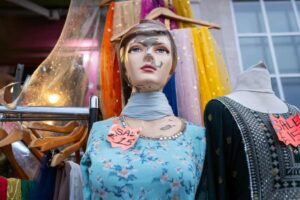
The south Asian high street is facing a fight for its future in Britain as customers scale back wedding celebrations because of the cost of living crisis and young people’s changing preferences.
Businesses in London and Manchester have said they have witnessed a huge decline in customers after the pandemic with the cost of living crisis prompting many to decide against the traditional big south Asian wedding and to seek out cheaper products online.
Ankush Puri opened his south Asian clothing store in the west London district of Southall, nicknamed “Little India”, in 1993. He had moved to the UK from India five years prior and was among several other budding entrepreneurs with their sights on the growing south Asian retail market in the UK.
“Things have changed completely since 1995. In 2024, things are completely different, people are selling online, they’re selling for low prices and shopkeepers have got expenses … the rents and rates are higher but your profits are low and you can’t cope,” he said.
The decline of Britain’s high street has been well documented in recent years, owing to online shopping, rising inflation and lack of investment.
Yet the south Asian retail market has remained extraordinarily resilient, meeting the needs and desires of the country’s growing south Asian population, and offering customers garments, such as saris, lehenga cholis and salwar kameezes, that would otherwise be impossible to find on a typical British high street.
Puri, like many other business owners, has attempted to adapt by launching an online business, DesiSarees.com, and shifting from selling women’s garments to men’s. But, almost 30 years on from opening his store, Puri said he is still struggling to turn a good profit.
